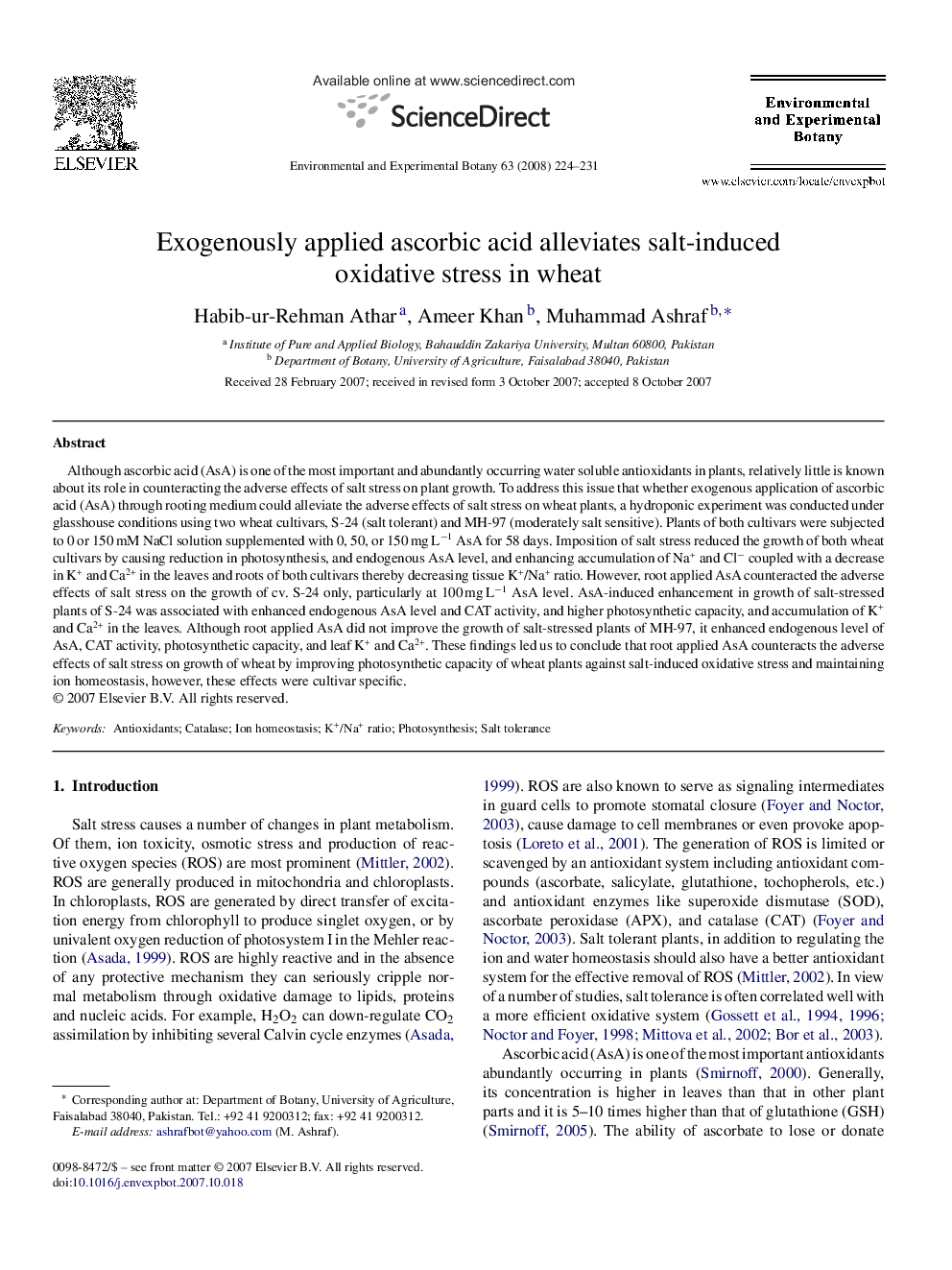| Article ID | Journal | Published Year | Pages | File Type |
|---|---|---|---|---|
| 4555294 | Environmental and Experimental Botany | 2008 | 8 Pages |
Although ascorbic acid (AsA) is one of the most important and abundantly occurring water soluble antioxidants in plants, relatively little is known about its role in counteracting the adverse effects of salt stress on plant growth. To address this issue that whether exogenous application of ascorbic acid (AsA) through rooting medium could alleviate the adverse effects of salt stress on wheat plants, a hydroponic experiment was conducted under glasshouse conditions using two wheat cultivars, S-24 (salt tolerant) and MH-97 (moderately salt sensitive). Plants of both cultivars were subjected to 0 or 150 mM NaCl solution supplemented with 0, 50, or 150 mg L−1 AsA for 58 days. Imposition of salt stress reduced the growth of both wheat cultivars by causing reduction in photosynthesis, and endogenous AsA level, and enhancing accumulation of Na+ and Cl− coupled with a decrease in K+ and Ca2+ in the leaves and roots of both cultivars thereby decreasing tissue K+/Na+ ratio. However, root applied AsA counteracted the adverse effects of salt stress on the growth of cv. S-24 only, particularly at 100 mg L−1 AsA level. AsA-induced enhancement in growth of salt-stressed plants of S-24 was associated with enhanced endogenous AsA level and CAT activity, and higher photosynthetic capacity, and accumulation of K+ and Ca2+ in the leaves. Although root applied AsA did not improve the growth of salt-stressed plants of MH-97, it enhanced endogenous level of AsA, CAT activity, photosynthetic capacity, and leaf K+ and Ca2+. These findings led us to conclude that root applied AsA counteracts the adverse effects of salt stress on growth of wheat by improving photosynthetic capacity of wheat plants against salt-induced oxidative stress and maintaining ion homeostasis, however, these effects were cultivar specific.
